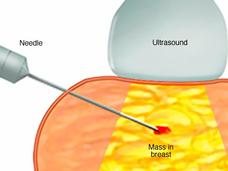| Having trouble viewing this email? View it as a Web page. You are receiving this message because you are subscribed to News Releases for National Institutes of Health (NIH).
02/28/2020 01:00 PM EST The respiratory illness caused by a novel coronavirus poses complex challenges to the global public health, research and medical communities. |
Friday, February 28, 2020
COVID-19 a Reminder of the Challenge of Emerging Infectious Diseases
COVID-19 a Reminder of the Challenge of Emerging Infectious Diseases
Update your subscriptions, modify your password or e-mail address, or stop subscriptions at any time on your Subscriber Preferences Page. You will need to use your e-mail address to log in. If you have questions or problems with the subscription service, please contact Subscriber Help. This service is provided to you at no charge by National Institute of Allergy and Infectious Diseases (NIAID). |
McCaffery offers MHS view with Blue Star Families Panel
|
 | Questions for MHS? Contact Us |
| STAY CONNECTED: | ||||
| SUBSCRIBER SERVICES: | ||||||
| Manage Preferences | | | Delete profile | | | Help | ||
| This email was sent to myhcistech.healthnews360@blogger.com by: Military Health System · The Pentagon · Washington, DC 20301 |  |
Analyzing Tumor Proteins and Genes with Less Tissue - Cancer Currents Blog
|
| ||||||||
| | | | | | ||||
|
| ||||||||
| This email was sent to myhcistech.healthnews360@blogger.com using GovDelivery Communications Cloud on behalf of: National Cancer Institute · BG 9609 MSC 9760 · 9609 Medical Center Drive · Bethesda, MD 20892 |  |
Antioxidant supplements do not improve male fertility, NIH study suggests
| Having trouble viewing this email? View it as a Web page. You are receiving this message because you are subscribed to News Releases for National Institutes of Health (NIH).
02/28/2020 10:00 AM EST Men in the study received an antioxidant supplement with vitamins C, E and D, selenium, l-carnitine, zinc, folic acid and lycopene. Update Your E-mail Address | Add Subscriptions | Unsubscribe If you have questions or problems with the subscription service, please contact subscriberhelp.govdelivery.com. For all other inquiries about NIH programs and activities, please contact Ask NIH. Before writing, please view our Frequently Asked Questions page, our Health Information page, or Search our website. This service is provided to you by the National Institutes of Health.
|
Thursday, February 27, 2020
Stuttering | Coronavirus | Preterm birth | Vitiligo | Earplugs
| Discover the causes of stuttering, get updates about the coronavirus, learn how to use earplugs to protect your hearing, and more. |
Update Your E-mail Address | Add Subscriptions | Unsubscribe If you have questions or problems with the subscription service, please contact subscriberhelp.govdelivery.com. For all other inquiries about NIH programs and activities, please contact Ask NIH. Before writing, please view our Frequently Asked Questions page, our Health Information page, or Search our website. This service is provided to you by the National Institutes of Health.
| |||||||||||||||||||||||




















